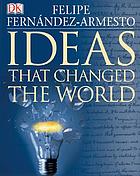13 November
language today and tomorrow
"Language is the dress of thought," Samuel Johnson once said.
Are dying languages worth saving?
You were asked to think about these issues
... (as) wealth grows, there appears to be an increasing demand to learn and use (European languages), for they are now seen less as symbols of colonial domination and more as crucial keys for access to the global system.
Have we escaped the colonial past and are we now moving into a new, generally balanced, global era?
For many purposes, it is less important how many there are in a linguistic community than who those people are - and how well distributed.
Does this mean that languages of the poor and dispossessed are threatened while languages of the well-to-do and mobile are in ascendance?
For languages, as for any human institution, when you are on top, sooner or later there is only one way to go ... when the language whose use is to be reduced is their own, expect discomfort to be registered ... But no and no decree anywhere has ever yet stemmed the ebbing of a language tide ...
Thinking of this statement in terms of the gradual flow of Spanish speakers into the USA, can (or should) it be stopped with laws and restrictions? Or should we evolve into Spanglish?
A language does not grow through the assertion of power, but through the creation of a larger human community ... A common language is what enables ever more members to participate in it.
What is our future "common language"?
Things to ponder
Even now the quasi-spontaneous migration dynamic of Spanish speakers moving north across the Rio Grande is the greatest challenge to the complete dominance of English in the USA ... Immigration is the basic seed of language spread, but very often the propensity fo newcomers to settle, and so displace older populations with different languages, is compounded and reinforces by the greater fertility of the newcomers.
... two-thirds of the world's 147 million Turkish-speaking peoples ... are now organized independently of foreigners for the first time since the Russian advance into central Asia. As a total community, there are more of them than there are speakers of any of German, French, or Japanese. With better communications, they will begin to consider themselves a unit, for most of their languages are mutually intelligible.
Three threads
- Freedom - of speech may now be a reality, but over the sweep of history it has been at best an aspiration
- Prestige - of speech are rooted in associations with wealth, practical wisdom, enjoyment, and spiritual enlightenment. A prestige language is any foreign language that is learned for cultural advantage.
- Learnability - languages may be more easily learned by a new population, and hence spread more easily, when they are structurally similar to the old language of that population. Learning a new language is an uphill struggle, perhaps too difficult for many who are already grown.
an idea for the day


